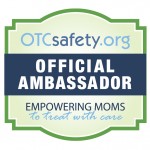 I received an e-mail a few weeks ago from a mom, desperate to help her two year old son. He just so happened to be “the biter”.
I received an e-mail a few weeks ago from a mom, desperate to help her two year old son. He just so happened to be “the biter”.
At some point in our parenting journey, we’re all faced with biting and children. Either our children have been on the receiving end, our children are the ones biting, or we have been bitten ourselves!
This concerned mom expressed embarrassment, but more importantly, a desire to help her son (and his preschool friends) to overcome this phase in his development.
From the tone of her e-mail, I knew she was in distress over the whole situation. She worried that her son would be labeled “the bully”.
The thing about toddlers/preschoolers and biting is that it truly is a normal part of social development for many children, albeit an unacceptable one.
Unfortunately, parents of “the biter” often suffer unfair scrutiny and judgement once the word gets out. As Dr.Jen (also a mom and pediatrician), who blogs over at Play This Way, says in her post on children and biting…“I would much rather be the mom of the bitten than the biter!” And she knows both sides intimately, being mom to two sets of twins!
So, for starters, if you happen to be the parent of “the biter”, here’s what you should know:
It’s not your fault and do your best to ignore the stares and glares. Instead, focus on finding ways to help your child express himself in other ways. Also, know that children less than 3 often will go through a biting phase. It does not mean he will grow up to be a bully. This does not mean that biting should be ignored. On the contrary, biting should be addressed directly and swiftly.
Before we go into the details on how to help your child avoid biting, it helps to know why children bite.
Why do young children bite?
Think of biting as an expression of emotion and a way of communicating. No, it’s not an effective one, but for some children it’s all they’ve got. They’re at a loss for words and the emotions can be overwhelming. It’s over simplistic and unfair to simply label biting as bad behavior. Unacceptable, yes, but also understandable when you delve into the two year old psyche.
The same circumstances that can trigger tantrums, can similarly incite biting. Think fatigue, hunger, frustration, and distress over toys being taken away. Children less than 3 have very limited vocabularies. They often are at a loss of how to deal with other children taking away toys, pushing them down, or grabbing their cookie. Unfortunately, biting may be their only defense.
And, some children simply bite because they’re teething. My daughter surprised me one day at the park when she just sank her newly erupted teeth right into my shoulder. I think my shriek of pain and surprise was enough to convey that biting was not okay. Then I gave her teething ring.
So…how can you help them?
In the heat of the moment, it’s important to intervene immediately, separate the children and say to the biter “No biting!” and “Ouch! You hurt your friend.”
It’s also important to show empathy toward the bitten. “I’m so sorry. Are you okay? Your friend should not have bitten you. That is not okay”. The child who did the biting , should have some “quiet” time or “time out”. This should be brief and without much hoopla. Once the child is asked to return to play, you should help him apologize to the child who got bitten.
Now for getting to the heart of it. Make sure you give your child plenty of “time ins”. He needs to hear when he is doing well. For instance, when he is playing nicely, waiting his turn, and not biting when he gets upset…he most certainly deserves some praise. Positive reinforcement goes a long way.
Give your child ways to handle his frustrations without resorting to biting. Teach your child to say “No!” when another child grabs his toy or makes him upset. Let him know it’s okay to feel sad, mad, or frustrated. Help him express these emotions by using his words. Empower him to seek out his teacher when he feels threatened or upset by another child.
Moderate play with your child amongst his peers. Intervene when you notice he is frustrated or mad and give him words to validate his feelings. For instance, say “I know you really wanted to play with that truck and you’re really sad that you have to wait. Why don’t we play with this car until your friend is done with the truck”. Children this age really do need our help in learning how to interact, share, and play with their peers. Remember, they are quite egocentric at this age and their emotions tend to override any logic.
Make sure you maintain a calm, loving environment with a routine he can count on. Children thrive on routine and it gives them a sense of security. In addition, sticking to a nap, snack, mealtime, and bedtime schedule will ensure that your child will get the sleep he needs and won’t fall prey to one of the dreaded tantrum or biting triggers (lack of sleep, hunger, frustration, etc).
What not to do:
Please don’t ever “bite your child back”. That is quite possibly the worst thing anyone can do. This teaches the child nothing and only hurts him.
Also, giving a child a bitter tasting substance as punishment is just as bad.
Remember:
Your child is not “bad” because he bites. Yes, the action is unacceptable, but once you get down to the why and when of biting, you’ll see that your child is just learning to express himself and accept his sometimes overwhelming emotions. Our job as parents, is not to lay blame or succumb to the guilt, it’s to lovingly guide our little ones in the right direction and give them the proper tools to express themselves appropriately.
I’ll leave you with a fantastic clip about toddlers and biting from one of my favorite shows, Modern Family. I have to say, I love how Cam is handling Lily’s biting …with love and a song. What could be better than that? Also? It’s downright hilarious.
Have you had to deal with biting? Was your child the biter or the bitten? What did you do?









Love Modern Family. “And as a side not, private parts are private.” Too funny.
So, I was the mama of a biter. My son went through a phase just before he turned two of biting, then there was hair pulling, and then there was scratching. I was the usually the victim, but he did bite another toddler at the park once. His mom was horrified and not at all understanding. I think what’s important to remember is that it’s just a phase. We did time outs and lots of “no biting” and “please be gentle” and praise for good behavior, but I think it mainly stopped because he grew out of it. He’s very social and was still trying to figure out how to interact with others. He’s much better now and in fact is one of the friendliest kids in his preschool class.
I know, I love his “side note”.
Thanks so much for sharing your story. I think this will help moms going through this biting phase see the light at the end of the tunnel. It truly is a phase and these little ones and just trying to grapple with all their emotions and interactions with peers. Sounds like you did a lovely job in guiding your son through this phase!
Teeheee…I love Modern Family;) Nothing a ukulele, a lil song and a lots of love can’t solve:) I have noticed Kayla bites even just to play?? Just the other day she bit me on my leg and laughed. She thought me reaction was funny. I guess my startled expression and me saying ouch made her want to do it more….eeek! She doesn’t do it often enough for me to worry and better me than some poor child at daycare…noooo;/ Thank goodness I am SAHM,for now I get to take all the abuse but in return I also get to take all those hugs & kisses which make up for the rare occasional bite…OUCH! No biting allowed, maybe it’s time to buy a ukulele;)
Yes…time for a ukulele
And yes, sometimes little ones bite to express emotions such as love too! Tell her to give kisses, not bites! 😉
Great article, my friend. It’s hard on both ends. And yes, communication (or lack thereof) is often the issue. Baby Sign can help tremendously. Also, using feelings faces charts very early on can help them build a feelings vocabulary. They know what they’re feeling, they just don’t know how to say it.
I love baby signs! What a great idea about the feelings face chart. Thank you so much Katie!